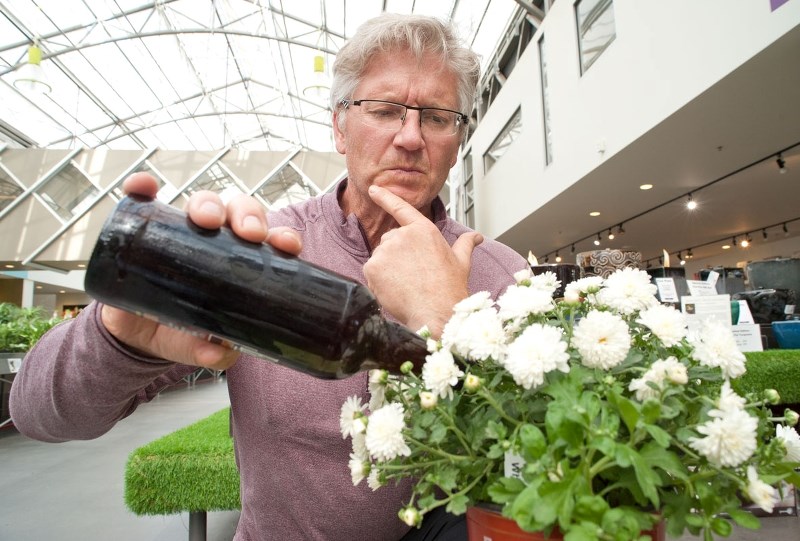By Kevin Ma
Thousands of North America's top plant scientists are in the Edmonton region this weekend to hear one of St. Albert's garden gurus talk about beer and plants.
Jim Hole of the Enjoy Centre is one of the keynote speakers at this weekend's Botany 2015 conference in Edmonton. Held every four years, the conference brings together some 2,000 researchers from across North America to discuss the latest in plant research.
While there are many plant societies in Canada, most of them don't often work together, says Shahrokh Khanizadeh, president of Plant Canada and conference organizer. This event is meant to get researchers from different fields talking with each other.
This is the first time that the conference has included American plant societies, roughly tripling the size of the event, Khanizadeh says.
While most of the topics at the conference are highly technical, some, like Hole's, deal with making plant science relevant to everyday people. Hole is also giving conference-goers a tour of the Enjoy Centre Sunday.
Hole says his talk will deal with various gardening myths such as the idea that beer makes good plant fertilizer – supposedly because it contains water and carbohydrates.
"Actually, it doesn't do a very good job. They've tried it," he says.
"There's nothing to back it up."
Most of the recipes you find online have you mix beer with all sorts of other substances such as Coke and ammonia, so it's tough to tell which element – if any – is helping the plants. The ethanol in beer is also toxic to plants. But because these tips are often put on flashy websites, they look believable.
"There's a gap that exists between researchers and the general public," Hole says, one researchers have to close to get people the information they need to see through these myths. His talk will focus on how to get the word out about the exciting world of plants and plant science.
"Plants are fundamental to so many aspects of our lives," he notes.
"If you want to be able to eat chicken and beef, (those animals) have to eat plants. If you're wearing clothes, you need cotton out of (plant) fibres."
Plants are cool
All human and animal life depends on plants, and as the human population grows, plants will need all the help they can get to make the world habitable and life bearable, says Ken Thompson, a plant biologist at Britain's University of Sheffield and speaker at the conference.
"The better we understand them, the better they can do that."
Thompson writes a regular column in the British media on cool news coming out of plant research.
Researchers have discovered that plants such as lungworts will actually change the colour of their flowers "a bit like traffic lights" after they've been pollinated, he notes – to blue from red in the case of lungworts.
"Basically, they train bees to avoid the colour of old flowers."
Others have identified plants that release chemicals to attract insect predators when insects start eating them – something other researchers have described as a chemical "scream."
Thompson's talk will urge researchers to get out and promote plant science as cool to the public, both to draw in new researchers and public support for the field. Gardening is one way to get people interested in the field without them noticing, he notes.
"Many researchers are only really comfortable talking to their colleagues. But explaining their science to the public is good for scientists, and if they can't, can it really be all that important?"
The conference runs until Wednesday at the Shaw Conference Centre. Details are available at www.botanyconference.org.




